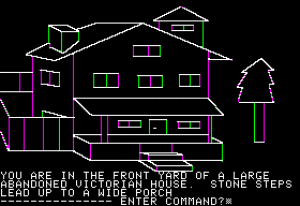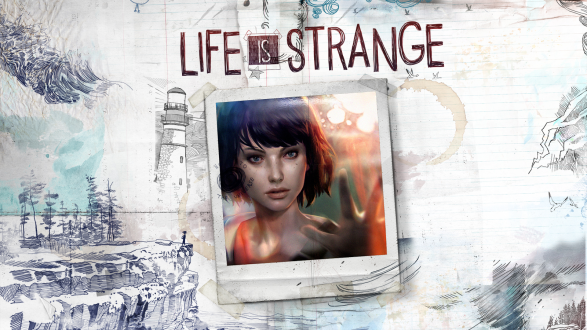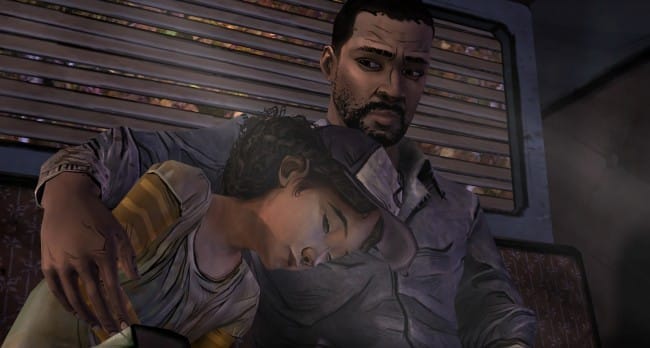We've come a long way since the heady days of the point and click adventure. Indeed, modern gaming has seen an increase in point and click style games that switch the focus from a more interactive visual novel to a genre that seems to be more about shaping a personal story than anything else.
The very first in a long line of narrative focused adventure games was Mystery House, a rudimentary point and click that has you hunting for a killer in an old Victorian mansion. When it was released in 1980, it sold around 80,000 copies worldwide. This may not seem like all that much compared to modern standards, but at the time it was the biggest commercial success in video games up to then.

The genre spawned a veritable smorgasbord of games building on the foundations of Mystery House. Some of them, such as the Monkey Island franchise by the now defunct game developer LucasArts, are still thought of very highly by a lot of older gamers and the first game in the series even got remastered in 2009. I would be remiss to not include the classic (and also recently remastered) Grim Fandango and Full Throttle.
But let's move on to more recent times. The Californian developer Telltale is perhaps best known for their excellent episodic point and click adaptation of Robert Kirkman's best-selling comic The Walking Dead. Their heavy focus on narrative and player choice quickly gained them a captive audience (yours truly among them), and the developer has since gone on to adapt nearly every major franchise known to man. Some were great (The Wolf Among Us), some decidedly less so (The Walking Dead Season 2), and some are just flat-out hilarious (Tales from the Borderlands). No matter what you think of their specific brand of design, you cannot deny the influence it has had, and is still having, on the industry as a whole.
I know 3D adventure games have existed before, hell there are a lot of very good ones out there already, but Telltale has managed to give their games a very personal kind of slant that allows you to inject a bit of your own personality into the story via the dialogues you have with the characters in their games. The brilliance comes from them being able to give you a variety of wildly different dialogue options in a lot of situations without making the things you can say feel out of character for the protagonist. It's a far cry from the dissonance you got when you were presented with choices for the sake of having them in older games.
Not bad for a company that opened its doors in the relatively recent 2004.
The thing that attracts me to Telltale style games is the heavy focus on storytelling and dialogue. I've become increasingly more aware of the fact that I don't tend to like games for their mechanics. To me, a great story can make generic or even bad gameplay that much easier to stomach. A good example of this would be Spec Ops: The Line, an extremely generic third person shooter that rewards the players persistence by giving you a fantastic plot that makes you question the fun you've been having with this game up to that point. Bioshock Infinite also springs to mind. It's a game with some decent shooting mechanics, but if it wasn't for the story and the world, the chances of me finishing it would have been rather slim. Yes, stories and player choice are what draw me to games, and the Telltale approach to storytelling seems like a perfect fit to me. The game that hammered this point home was Life Is Strange.

Life Is Strange is a game that for many of us came out of left field. At first glance the game is nothing more than a teenage drama set in a high school, but what it actually is, is a narrative tour de force. A game that lets you loose in an interesting, character-driven world that puts you in the driver's seat and allows you to customize who you want Max (the main protagonist) to be. It's an intriguing mix of well-crafted, and sometimes wonderfully cringe-inducing, dialogue that has a wonderful sense of pacing due to its episodic nature.
And there's another draw for me: the episodic format. I've heard it said a ton before that people don't like to run into arbitrary walls because the next episode hasn't been made yet. I find the whole idea rather wonderful. The thing with these episodic adventure games is that it's very easy for a developer to get people hooked on their game if the story at the start is interesting and has enough of a cliffhanger at the end of the episode. It allows people, even though sometimes begrudgingly, to band together in between episodes and theorize about what may or may not come next. I've seen this happen with The Walking Dead, and now I'm seeing it with Life Is Strange.
I've always enjoyed the discussion surrounding an episode of any given TV series I'm following, and I find it even more fun now that I can get together with other fans of the games I play, dissecting every scene of every episode in hopes of finding some clue as to what is going to happen when the next episode releases. Comparing choices, reading other people's thought processes behind the choices they made. It's become one of my favourite pastimes over the last few years and the developers behind those games seem keenly aware of this.
Even though I love the format, there are still things I don't really like. Some of them are technical in nature. In Telltale's case, there seems to be very little room for innovation. Every episode in every new series they create seems to be made out of the same mold, which makes the games feel rather same-y. It doesn't help that the engine never was what you would call “state of the art.” It's been three years since they released the first episode of the first season of The Walking Dead, and the engine has really begun to show its age now. Animations are clunky, emotions are overly telegraphed and the visage of all the characters is as lifelike as a cardboard cut out. There is a desperate need for improvement here if the company wants to be able to continue to enjoy the attention it has today.
The other thing is that your choices almost never seem to have the impact on the story that they would like you to believe, and that's not really their fault. Programming a game with a complex, branching storyline is no easy task because every new branch requires at least a partial rewrite of the story you're trying to tell and that could throw some proverbial flies in the ointment. How much agency can you give the player without compromising the story you're trying to tell? The solution they've come up with is a simple, yet slightly disappointing one: give players near-full control over the little details but restrict their control over the overarching storyline. It's a far from ideal solution to the problem, but it's a cost-effective one that will still give most players the illusion that their choices mattered in the end.
But I wonder if it can really be considered a problem. The way I see it some player choice (even if those choices are still limited) is better than none, and if I'm given the tools to sort of decide what sort of person my character is going to be, then I'm all for it. Again, we've come a long way since this adventure's start in the 80s, and I'm sure we'll be advancing even more in the coming years.
My opinion is just one of many. Click here to read Charlie Killick's article on episodic games.
Do you like the Telltale approach to point and click adventure games? What do you think of the episodic format as a whole?
Have a tip, or want to point out something we missed? Leave a Comment or e-mail us at tips@techraptor.net













